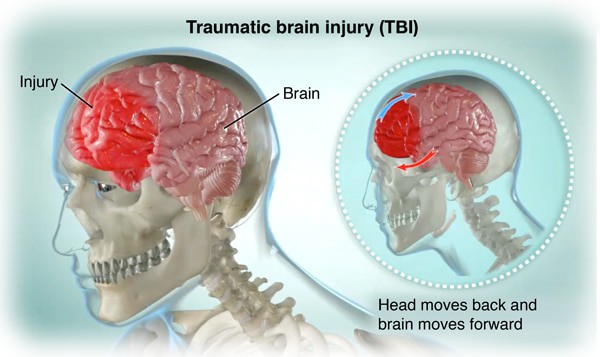There is a wide range of injuries that can occur in a car accident. Neck, back, and other musculoskeletal injuries are the most common but one of the most commonly ignored or undetected injuries is a concussion. Concussions are often undiagnosed and missed. If a physician is sharp enough to diagnose it, it is often not treated properly.
A concussion is a traumatic brain injury (TBI) caused by a blow to the head (focal TBI) or forceful shaking or rapid head movement (diffuse TBI), both of which can occur in a car accident. Even those involved in slow-speed car accidents can suffer from a concussion. A whiplash-type injury is when the head whips front to back (Head-on impact), back to front (Rear-end impact), or side to side (T-Bone impact). During a whiplash injury, sudden head movement may cause the brain to bounce back and forth against the skull, causing a minimal concussion or mild Traumatic Brain Injury (mTBI). This is also known in the medical world as a contrecoup head injury.
In some cases the victim may lose consciousness, in other cases, they may not. As a result, the person may suffer a concussion and not realize it. Regardless of consciousness, the injury is still a traumatic brain injury and could affect your memory, balance, coordination, and other essential brain functions. A concussion left untreated can lead to long-term complications, such as chronic headaches, memory problems, vertigo, severe headaches, dizziness, mood swings, and brain fog that can last for months or years.
Because any injury to the brain could have a lasting impact on your health and livelihood, it is vital to seek medical attention after any crash. This is especially true if any of these sixteen concussion symptoms appear immediately after a collision or develop over time:
- Anxiety when driving or in a car
- Headaches
- Blurred or fuzzy vision
- Mood swings – moody, irritable, sad
- Sleeping more or less than usual/trouble falling or staying asleep
- Difficulty concentrating or slowed thinking
- Balance problems or coordination concerns
- Slurred speech
- Loss of smell
- Increased fatigue – Tired all the time despite getting enough sleep
- Difficulty remembering new information
- Nauseous
- Day-to-Day Anxiety/panic attacks
- Dizziness
- Forgetful – Forget where you put things.
- Lose your train of thought mid-sentence
HOW COMMON ARE CONCUSSIONS?
Concussions are a common injury. When a person receives proper medical care when they have a concussion, there are usually no long-term effects. However, not receiving treatment can cause a person to suffer from lasting brain damage. The Centers for Disease Control (CDC) says that falls and car accidents are the two most common causes of brain injuries (including concussions) that resulted in hospitalization.
THE SIGNS OF A CONCUSSION
The signs and symptoms of a concussion may not display the same for every person. Importantly, you need to understand that adults and children may show signs differently. Many signs of a concussion can be immediately apparent. However, some concussion symptoms may not appear for hours, days, or even weeks after a car crash.
According to the Mayo Clinic, the most common signs and symptoms of a car accident concussion include:
- Headache or a feeling of pressure in the head
- Temporary loss of consciousness
- Confusion or feeling “foggy”
- Amnesia about the car crash. Can’t remember specific details.
- Dizziness or “seeing stars”
- Ringing in the ears, or a buzzing sound
- Delayed response to questions, feeling slow or can’t get your thoughts together.
- Appearing dazed. Can’t remember why you entered a room. Lost and confused.
- Fatigue – Tired all the time, feeling like you can’t get enough sleep. Tired when you wake up in the morning.
- Cognitive problems – Can’t remember details of events. Loses train of thought frequently.
- Nausea
- Vomiting
- Slurred speech
- Anxiety when driving or in a car even as a passenger.
Sometimes these symptoms may appear to get better on their own, but frequently the body learns to cope with the mental confusion or the patient learns to live with it.
BEWARE OF DELAYED CONCUSSION SYMPTOMS
After a concussion, a person can experience “post-concussion syndrome.” These signs and symptoms are the same as those for a concussion, but they last for more extended periods. Not everyone who suffers from a concussion will experience post-concussion symptoms.
TREATMENT FOR A CAR ACCIDENT CONCUSSION IS IMPORTANT
If you are involved in a car accident, you should always seek medical care immediately. If you choose not to seek medical care, you could be putting your life or health at risk. Many people assume they are not injured because they feel no pain immediately after a crash, but this is often due to a release of adrenaline and other natural pain killers by our bodies when a crash occurs. A TBI is often misdiagnosed or undiagnosed after a car crash.
How are TBI’s and Concussions treated at Hope Health & Wellness?
A doctor will conduct a neurological exam after a car accident to determine whether you have suffered a concussion from the trauma. We use sophisticated testing that includes:
A qEEG (Quantitative Electroencephalogram) is a diagnostic tool that measures electrical activity in brain wave patterns and develops the recordings into an image. This is what we refer to as “brain mapping.” Brain waves are the rhythmic electrical impulses generated when the millions and millions of neurons inside the brain communicate with each other. Brain waves can reveal important information about overall brain function, including stress levels, thought patterns, and emotions.
A Brain Map helps us identify the problem areas of the brain. A qEEG evaluates a person’s brainwave patterns objectively and scientifically. Think of a qEEG Brain map like an EKG recording…it provides us with accurate information about the entire brain and where problems may lie.
A brain map generates a recording of your brain’s electrical activity through tiny sensors at different parts of your brain.
We will record your brain waves with your eyes open and closed for approximately 5 minutes each. We will ask you to sit and relax, limit your movement in the chair, avoid excessive swallowing, and minimize any form of muscle tension as much as possible. It often helps to pretend like you are on the beach or getting a massage.
The results are then analyzed to create a multi-color brain map, which we will review with you, in person, at your next appointment.
Neuro-Cognitive Assessment Test:
Our patients also undergo a Neuro-Cognitive Assessment (CNS) test, a procedure that utilizes scientifically validated, objective, and reliable computerized neuropsychological tests to evaluate the patient’s neurocognitive status. This computerized evaluation will cover a range of mental processes from simple motor performance, attention, memory, and executive functions.
Computerized Adaptive Test:
Our patients also perform a CAT – MH computer adaptive test (CAT). The purpose of this test is to evaluate the level of depression, anxiety, PTSD, and other psychological conditions.
The qEEG and other testing results are reviewed by our board-certified neurologist, and a face-to-face neurological consultation is conducted before implementing any treatment.


Subscribe To Our Newsletter
Join our mailing list to receive the latest news and updates from our team.
You have Successfully Subscribed!